Of course, if you’re like many people out there…
(raises hand)
…when you first heard the term “SMART goal”, you thought it meant a goal that was clever, intelligent, or bright.
Eventually, you learned SMART was an acronym.
Or, heck, maybe you’re learning this fact right now.
Either way, you’re here because understanding these newfangled “smart goals” everyone’s talking about is an itch you need to scratch.
And today, I’m going to help you scratch it.
The days of being embarrassed for not knowing the SMART acronym are over. So, too, are your days of setting overly simplistic, vague, or — let’s be honest — lame goals that inevitably lead to failure and disappointment.
Ready?
We’ll start with the definition…
>> Free Download: Our handy, printable SMART Goal Template
What are SMART Goals Anyway?
As you now know…
SMART is an acronym for Specific, Measurable, Achievable, Relevant, and Time-bound.
Great. Wonderful.
But what do they mean?
Let’s break them down:
S: Specific
An effective goal should be specific and well-defined. It should answer the questions of what you want to accomplish, why it’s important, and how you plan to achieve the darn thing.
In short, a specific goal gives you clear direction.
Vagueness? Nope. There’s no room for that here.
M: Measurable
A measurable goal is one that’s quantifiable — it includes smart criteria that allow you to track your progress and know when you’ve achieved the goal.
This usually (but not always) involves numbers or milestones.
Measurable goals aren’t sexy, but a clear, smart objective ensures you can see your progress and stay motivated.
A: Achievable
It sounds obvious…
(probably because it is)
…but a SMART goal is an achievable goal that’s realistic and attainable.
A stretch goal is fine. Aiming high is great.
But an unrealistic goal? No.
You need to make sure the thing you’re going after is actually within reach.
R: Relevant
Think big picture. Does the goal align with your sweeping, broader objective in life?
A relevant goal does.
It’s a goal that matters to you — one that, when the going gets tough, you’re willing to roll up your sleeves and work for because you know it contributes to your long-term success.
In other words:
If it doesn’t ultimately matter, you’re not going to hang in there and do it.
T: Time-bound
Does your goal have a deadline? A time frame that creates a sense of urgency?
It does if it’s a time bound goal.
When you have all the time in the world to get stuff done, you rarely get much of anything done.
Funny how that works, right?
That’s why, when it comes to meaningful goals, we need time constraints. They help us stay focused and motivated on our ultimate goal and broader objective, all the while ensuring we prioritize what needs to be prioritized (and de-prioritizing what doesn’t).
So, that’s the SMART acronym, broken down piece by piece.
Sounds good, right?
It’s little wonder why…
Smart People Choose SMART Goals
Ten out of ten smart people agree:
Setting goals and failing, over and over, time and time again, stinks.
They’re tired of setting a New Year’s Resolution-style financial goal of knocking out debt, but never making even the smallest of dents.
They’re tired of making an ambitious goal to lose weight, only to end up heavier than when they started.
They’re tired of setting a big business goal or various professional goals to move ahead in their careers, but year after year finding themselves still stuck in the rat race.
So, smart people make the switch to SMART goals.
And you know what?
So should you (because you’re smart).
They’re easy to do too…
You just need a “smart framework” (so to speak).
Once you understand the process, it’s nothing more than filling in a few blanks.
And I mean filling in the blanks literally, by the way. According to a study conducted by Dr. Gail Matthews, 76% of people who write down their goals successfully achieve them — a whopping 33% higher success rate than those who keep them unwritten.
So let me show you how it’s done.
Let’s look at a SMART goals example or two (or twelve), broken down into common, everyday categories…
12 Super Practical (& Super Effective) SMART Goal Examples
We’ll start with one I’m always struggling with:
1. Improve Your Time Management
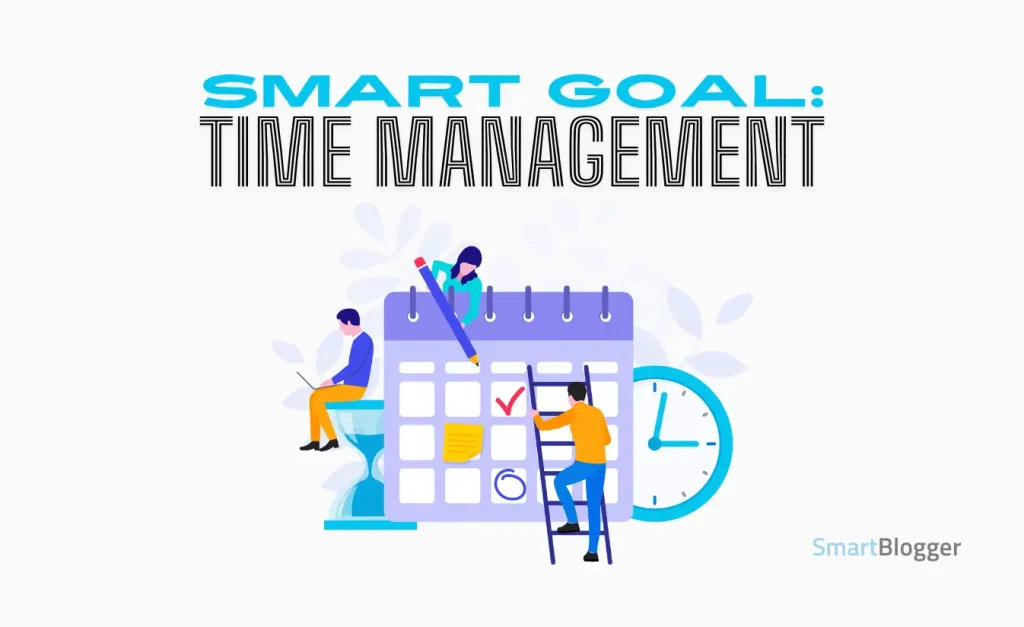
Vague Goal:
I want to manage my time better.
SMART Goal Components:
- Specific: I’ll use a project management planner to organize my tasks and set priorities.
- Measurable: I’ll allocate specific time blocks for each task so I can (hopefully) avoid multitasking.
- Achievable: Each night, I’ll plan the next day so I can be prepared and focused.
- Relevant: If I’m better with my time, I’ll be more productive and less stressed.
- Time-bound: I’ll follow this system for the next 4 weeks.
SMART Goal:
For the next 4 weeks, I’ll use a project management planner to organize my tasks, allocate specific time blocks, and avoid multitasking to improve my time management.
2. Get More Sleep
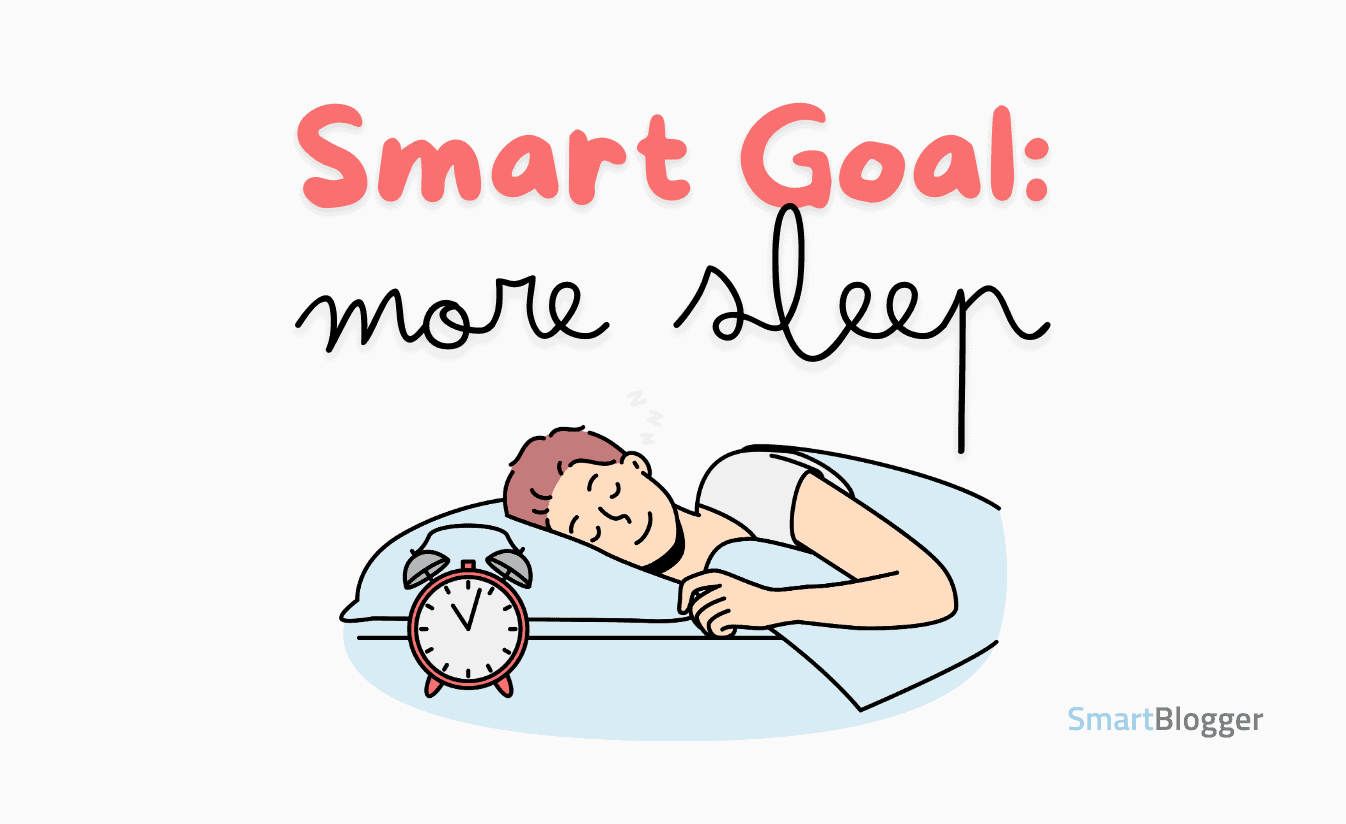
Vague Goal:
I want to sleep better.
SMART Goal Components:
- Specific: I’ll start a bedtime routine that includes turning off the TV and putting down my iPhone at least 30 minutes before I go to bed.
- Measurable: I’ll aim for 7 hours of sleep a night.
- Achievable: If I have a consistent bedtime and reduce my screen time, I can improve my sleep quality.
- Relevant: Better sleep will improve my mood, energy levels, and overall health (and help me not be reliant on guzzling gallons of coffee each morning).
- Time-bound: I’ll follow this bedtime routine for 1 month.
SMART Goal:
For the next 4 weeks, I’ll follow a bedtime routine that includes turning off screens 30 minutes before bed, aiming for at least 7 hours of sleep each night.
3. Lose Some Weight
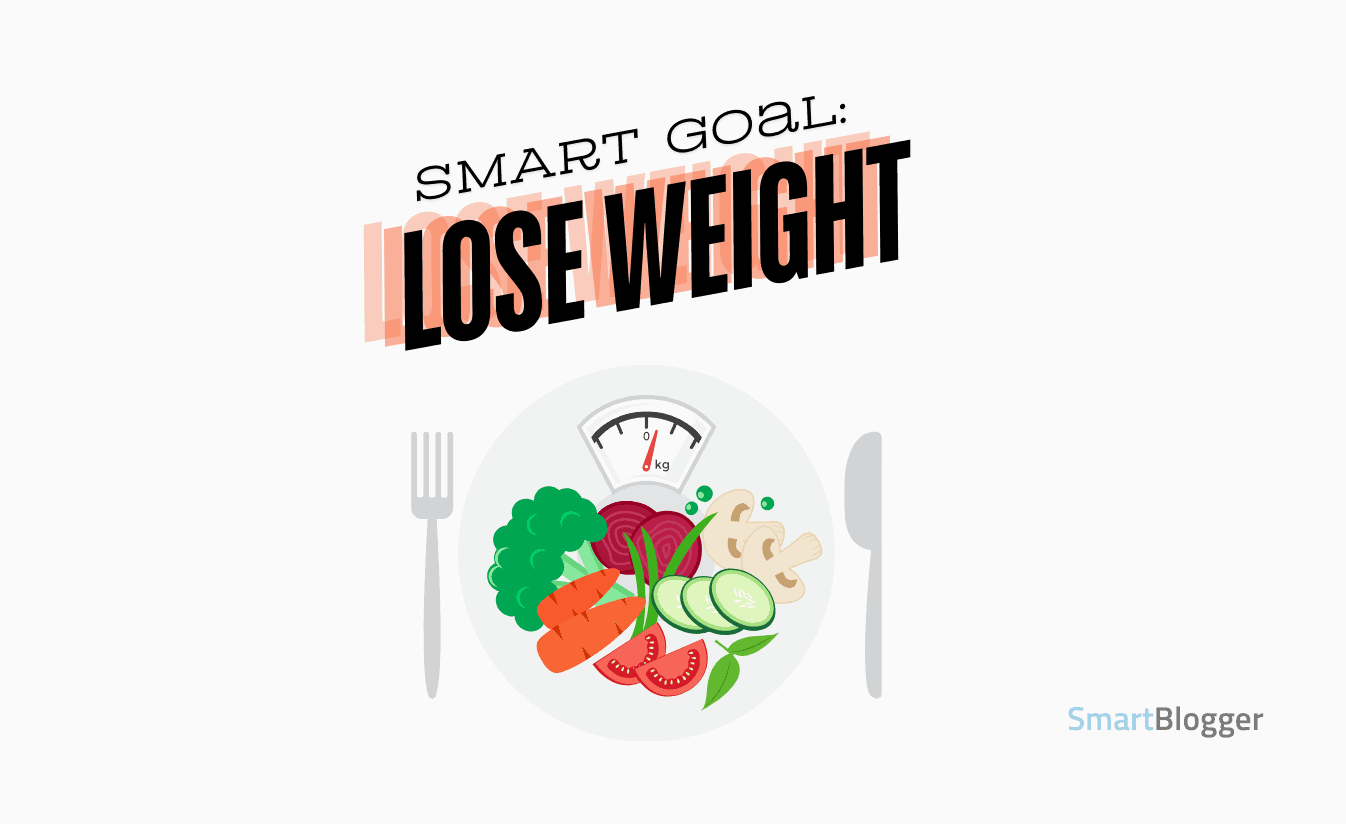
Vague Goal:
I want to lose weight.
SMART Goal Components:
- Specific: I want to lose 20 pounds by eating healthier and exercising.
- Measurable: I’ll track my goal progress every week with a weight scale and a food diary app my Mom sent me.
- Achievable: I can lose 1 pound per week by following a balanced diet, joining a gym, and working out 3 times a week.
- Relevant: Losing weight will improve my overall health, give me more energy, and help me fit into my pants again.
- Time-bound: I’ll lose 20 pounds in the next 20 weeks.
SMART Goal:
I’ll lose 20 pounds in the next 20 weeks by following a balanced diet and exercising three times a week, tracking my weekly progress with a scale and a food diary app.
4. Save Some Moolah
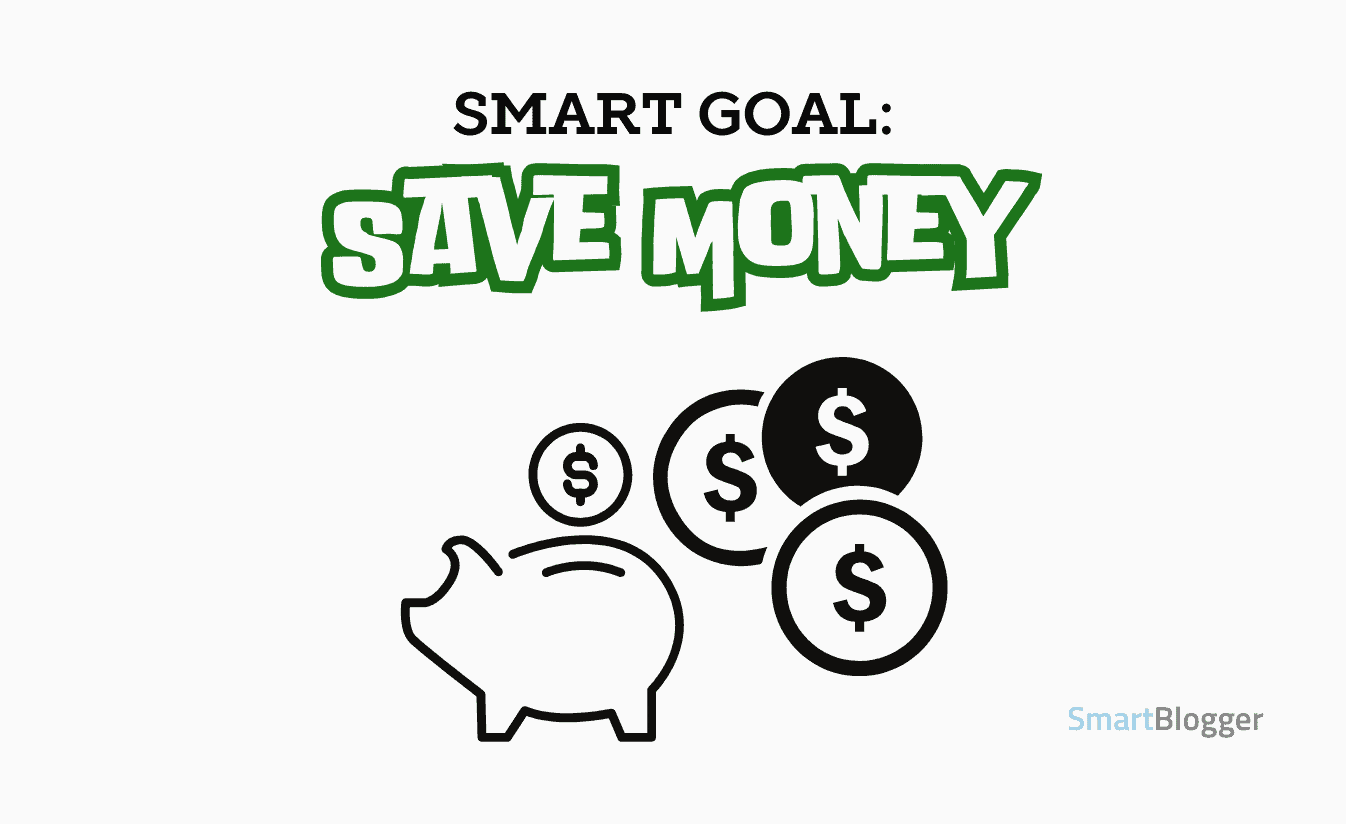
Vague Goal:
I want to save more money.
SMART Goal Components:
- Specific: I’ll save $1,000 for an emergency fund.
- Measurable: I’ll set aside $100 from my paycheck each month and put it in an interest-earning savings account.
- Achievable: I can reduce discretionary spending like Spotify, Netflix, and gym memberships to free up money for savings.
- Relevant: Building an emergency fund will provide security for me and my family.
- Time-bound: I’ll save $1,000 within the next 10 months.
SMART Goal:
I’ll save $1,000 for an emergency fund within the next 10 months by setting aside $100 from my paycheck each month and cutting back on discretionary spending.
5. Be More Productive
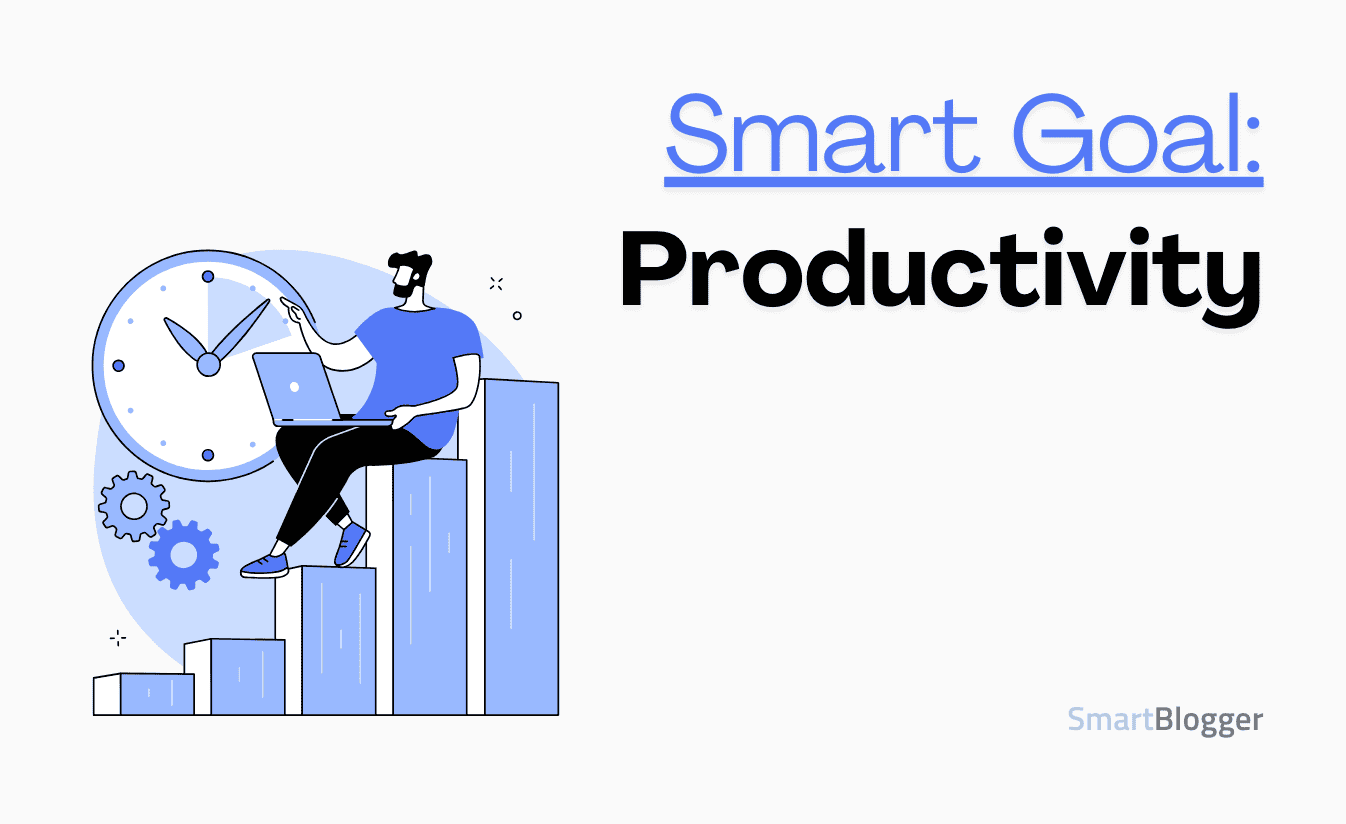
Vague Goal:
I want to be more productive.
SMART Goal Components:
- Specific: I’ll use the Pomodoro Technique to help me focus on work tasks.
- Measurable: I’ll complete four Pomodoro sessions (25 minutes of work followed by a short 5-minute break) each day.
- Achievable: I can implement this technique by setting a timer and minimizing distractions (I’m looking at you, 𝕏 and Facebook).
- Relevant: If I can enhance my productivity, I’ll be able to get more accomplished, which will reduce my stress.
- Time-bound: I’ll use the Pomodoro Technique for the next 2 weeks.
SMART Goal:
For the next 2 weeks, I’ll increase my productivity by using the Pomodoro Technique, completing 4 Pomodoro sessions each day.
6. Relationships

Vague Goal:
I want to improve my relationship with my wife.
SMART Goal Components:
- Specific: I’ll spend more quality time with my wife by planning “date nights.”
- Measurable: We’ll have one date night each week.
- Achievable: I can make time for these date nights by starting my day two hours earlier so I can end my workday sooner.
- Relevant: My wife is my best friend, and strengthening the relationship with your best friend is always time well spent.
- Time-bound: I’ll commit to date nights each week for the next 3 months.
SMART Goal:
For the next 3 months, I’ll plan and have weekly date nights with my wife so we can strengthen our relationship.
7. Travel Planning

Vague Goal:
I want to travel more.
SMART Goal Components:
- Specific: I’ll plan a two-week trip to Dollywood in Pigeon Forge, Tennessee.
- Measurable: I’ll book flights, accommodations, and create an itinerary so I can visit Black Bear Trail, ride Big Bear Mountain, and enjoy every bear-themed attraction Dolly Parton offers.
- Achievable: I’ll save $200 per month for the trip and research affordable hotel options.
- Relevant: Dolly Parton is a national treasure, and this trip will fulfill an item on my bucket list.
- Time-bound: I’ll book the trip within the next 6 months.
SMART Goal:
Within the next 6 months, I’ll plan and book a two-week trip to Dollywood by saving $200 per month and researching affordable hotel options.
8. Get Some Skills

Vague Goal:
I want to get better at photography.
SMART Goal Components:
- Specific: I’ll improve my photography skills by taking a photography class and practicing every week.
- Measurable: I’ll complete one online class and take photos every weekend.
- Achievable: I can set aside time each Saturday to practice and complete the course.
- Relevant: My kids are growing and being able to take better photos of them will preserve lasting memories.
- Time-bound: I’ll complete the class and practice for 12 consecutive weeks.
SMART Goal:
Over the next 3 months, I’ll improve my photography skills by completing an online class and taking photos every weekend.
9. Get Better at Speaking in Public
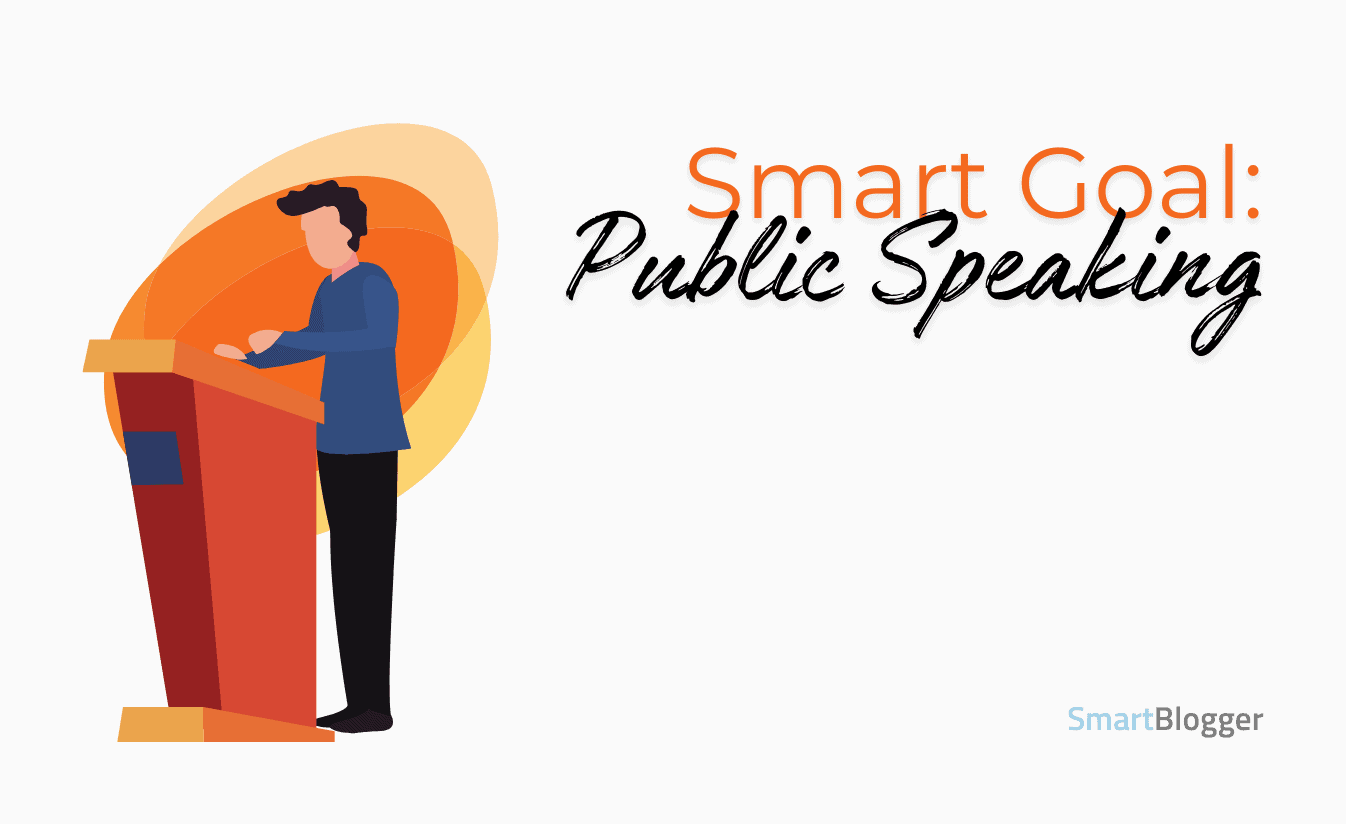
Vague Goal:
I want to be a better public speaker.
SMART Goal Components:
- Specific: I’ll get better at public speaking skills by joining a Toastmasters club.
- Measurable: I’ll attend meetings and give one speech each month.
- Achievable: I can make time to attend meetings and practice my speeches by clearing my schedule of meetings and photography classes.
- Relevant: Improving my public speaking skills will increase my confidence and potentially lead to some unexpected career opportunities.
- Time-bound: I’ll actively participate in Toastmasters for the next 6 months.
SMART Goal:
For the next 6 months, I’ll attend Toastmasters meetings and give at least one speech each month to improve my public speaking skills.
10. Reading More Books
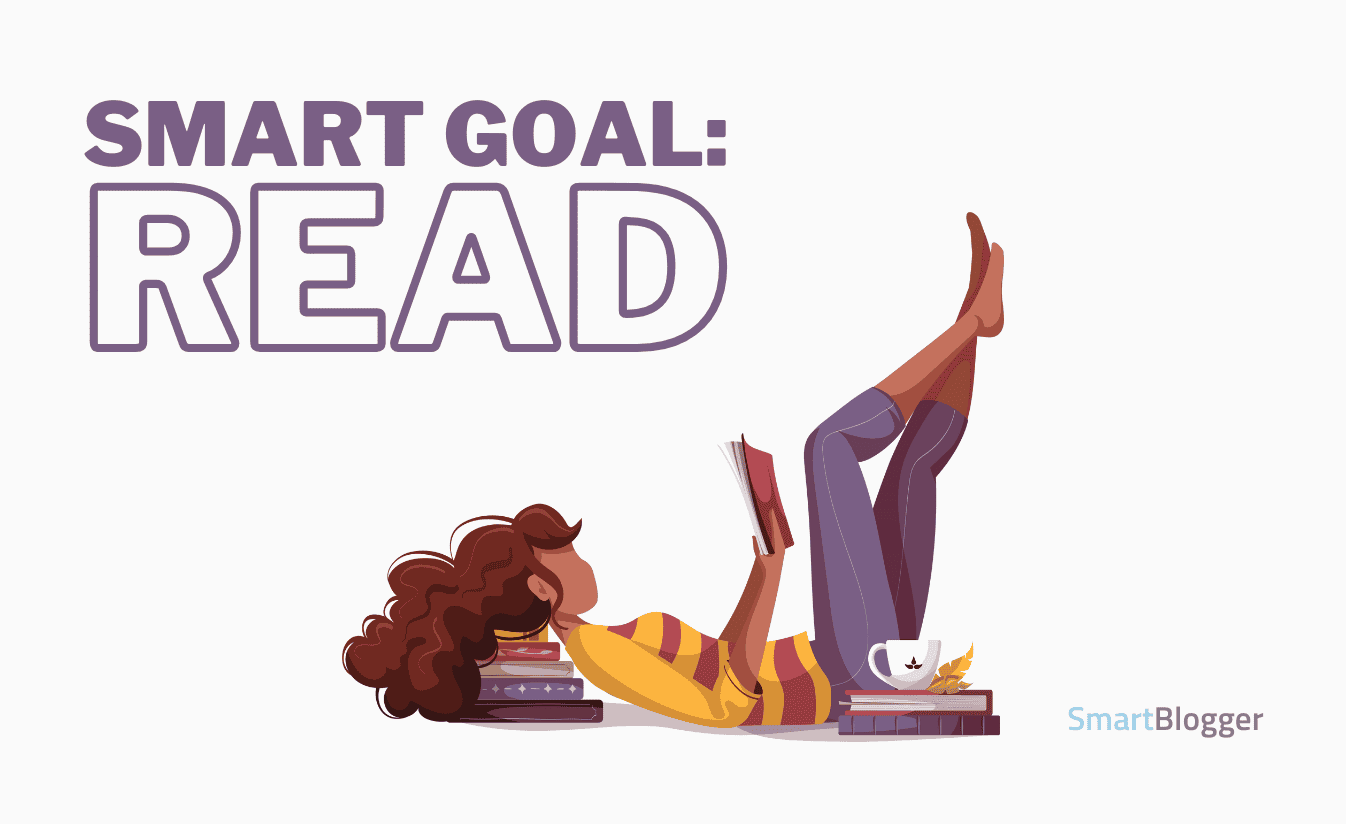
Simple Goal:
I want to read more books.
SMART Goal Components:
- Specific: I’ll read 12 books this year (ones without pictures inside them).
- Measurable: I’ll read one book each month.
- Achievable: I can set aside 30 minutes each day for reading by attending fewer Toastmasters club meetings.
- Relevant: Reading more will expand my knowledge and allow me to impress people I admire.
- Time-bound: I’ll complete 12 books by the end of the year.
Complete SMART Goal:
By the end of the year, I’ll read — and finish — 12 books by setting aside 30 minutes each day to read.
11. Organize the Chaos
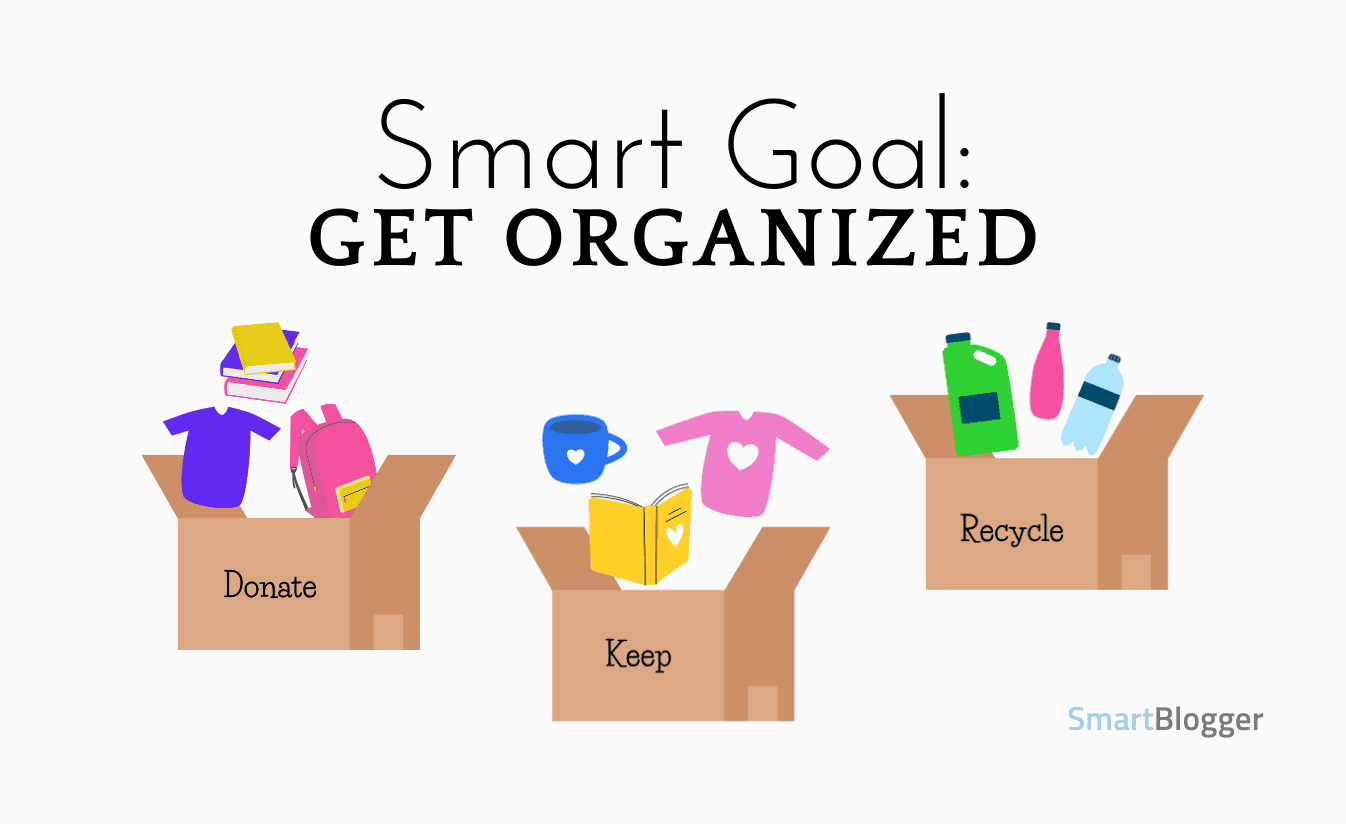
Vague Goal:
I want to be more organized.
SMART Goal Components:
- Specific: I’ll declutter and organize my home office.
- Measurable: I’ll spend 2 hours each weekend decluttering, organizing, and finding homes for my ridiculously large number of charging cables.
- Achievable: I can dedicate time each weekend to this task by not spending quite so much time reading books.
- Relevant: An organized space will increase my productivity, reduce stress, and save me from my mountain of charging cables.
- Time-bound: I’ll complete home office organization in 8 weeks.
SMART Goal:
Within the next 2 months, I’ll declutter and organize my home office by spending 2 hours each weekend decluttering my desk.
Pretty easy, right?
Here’s one more…
12. Start Setting Better Goals
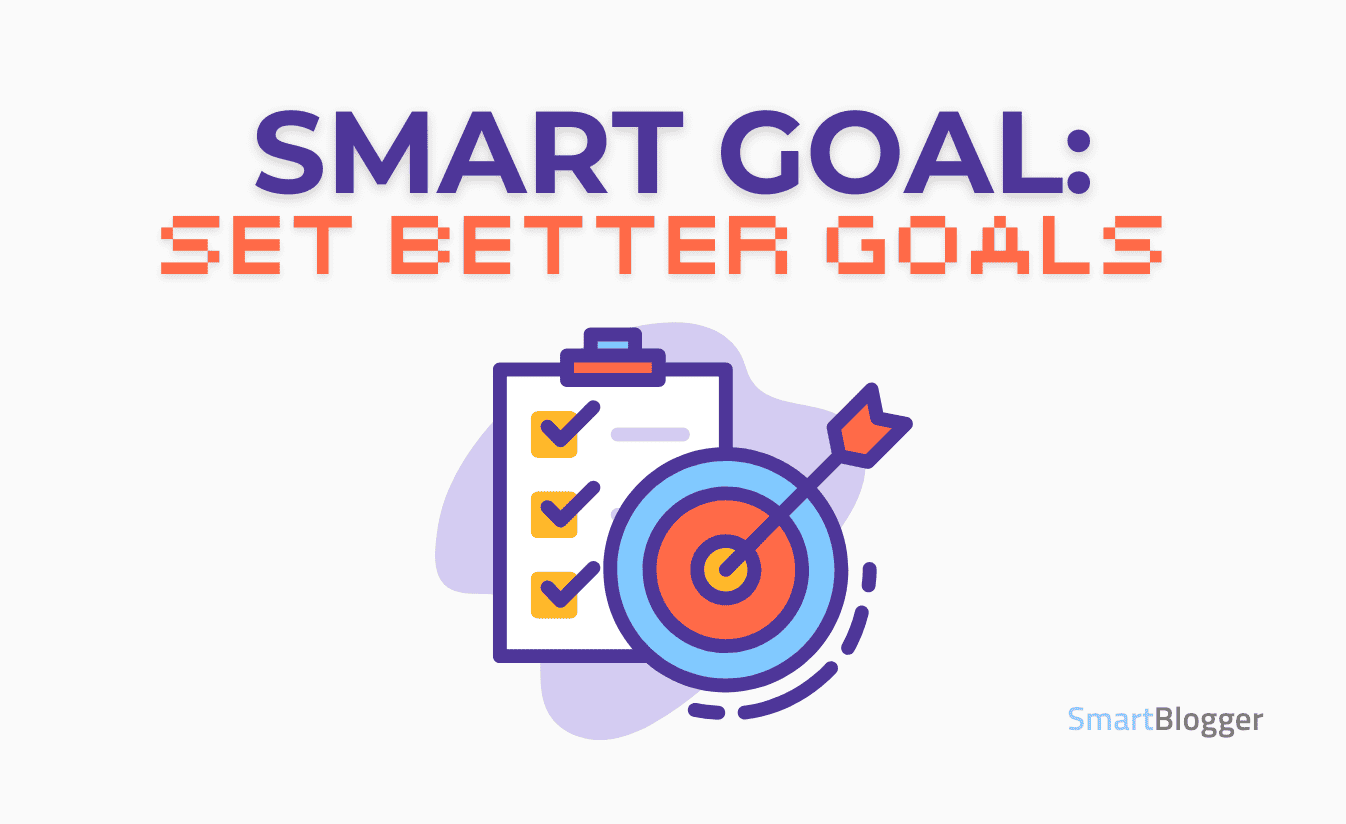
Vague Goal:
I want to stop setting vague, lame goals.
SMART Goal Components:
- Specific: Using the knowledge my new friend Kevin taught me in this post, I’ll create one SMART goal that’s clear, easy to track, within my reach, worthwhile, and has a deadline.
- Measurable: I’ll download this handy SMART goals template, print it, fill it out, and hang it on my desk or refrigerator.
- Achievable: I can download, print, and fill out this template in just a few minutes. Easy peasy.
- Relevant: Completing the SMART goal framework using a template will help me put into practice what I just learned, which will make it easier for me to set better — and smarter — goals going forward.
- Time-bound: I’ll do this right now.
SMART Goal:
Today, I’ll complete my first SMART goal by printing the template, filling it out, and hanging it on my fridge or desk.
Now, Go Forth & Create Smarter Goals
When you understand the framework, the ins and outs of the SMART goal setting process are a piece of cake.
Let’s quickly recap…
If you want to write effective SMART goals, remember:
- Super specific goals only. Whether it’s a personal goal, a career goal, or a goal to acquire some random skill like underwater basket weaving, make it a clear goal that’s well-defined.
- Make sure it’s measurable. If you can’t measure it, how will you know if you achieved it? Speaking of which…
- Make it achievable. If it isn’t a realistic goal — one that’s actually within reach — you’re wasting your time.
- Be relevant. The more in sync it is with your ultimate, long-term goals in life, the more likely you are to persevere when you come across your first pothole in the road.
- Have a timeframe. Give your goal a sense of urgency.
Now it’s your turn…
Which of these SMART goals examples was your favorite? What SMART goals will YOU create (and reach)?
Head over to this thread on 𝕏 (Twitter) and let me know.
Until then…
Be SMART, my friends.




